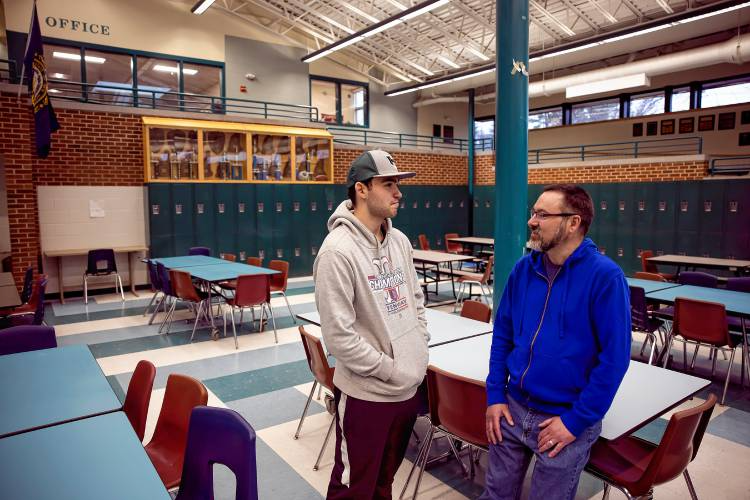The University of New Hampshire (UNH) reported its first bias incident of the fall semester in Congreve Hall on Saturday, Aug. 29.
A bias incident is defined as a threat or act of harassment or intimidation directed against an individual or group based on their actual or perceived identity.
This bias incident consisted of damage to a bulletin board on the second floor of Congreve. The board originally displayed self-care tips with a rainy-day theme. The letters were rearranged to display an anti-LGBTQ+ message.
The news of the bias incident in Congreve was spread to the wider community by the Instagram account @lgbtqatunh, which seeks to highlight the experiences of LGBTQ+ individuals at UNH. A screenshot of an email from Congreve’s hall director Danielle Miller was posted on this account, with the caption saying: “literally only took one day.”
In Miller’s email, she said that she was “disheartened by these events.” She added, “Residential Life has a commitment to inclusion within our halls and in the work we do. It includes our commitment to cultivating an environment in our residence halls, that expects nothing less than a welcoming community in which civility and respect are fostered, and discrimination and harassment are not tolerated.”
Darnelle Bosquet-Fleurival, assistant director of Residential Life, said that this bias incident was a typical one that Residential Life sees when it comes to the sensitivity of incidents. She has overseen bias incidents for the past four years, and said, “Most of our bias incidents are around passive things,” such as white boards, bulletin boards, and door decorations. Last year, before the coronavirus (COVID-19) pandemic, Bosquet-Fleurival said that Residential Life reported 29 bias incidents in residence halls, mostly around these “passive” objects.
“The hard thing is, for these incidents, is when we go around and ask questions, we can never figure out who did what, who saw what,” Bosquet-Fleurival said. “Our investigation kind of comes back to ‘nobody knows anything.’”
This bias incident in Congreve has reached a similar result, according to Bosquet-Fleurival. “For this incident, the RA talked to people on the floor, [Miller] talked to people, and nobody saw anything, nobody knew anything.”
“We’re left at educating,” Bosquet-Fleurival said. The process of educating the community about bias incidents, she said, is vital to combatting them. An example that Bosquet-Fleurival cited was from Miller’s email to the residents of Congreve, which contained a definition of bias incidents, an explanation of their impact on the community and an attachment to campus support offices.
Bosquet-Fleurival said that Residential Life’s goal is “totally to be transparent because we want to educate students.” To that end, when asked why the details of the bias incident were not circulated in Miller’s email or anywhere else, Bosquet-Fleurival said, “The goal is that we don’t want to reoffend, re-traumatize people in that community by an email that she wrote…Of course, if students say to [Miller], ‘I actually want to know what happened…’, she would be able to give them that kind of trigger warning and then…share it with them in a meeting one on one.”
“Our goal is we do not want further damage to the community,” Bosquet-Fleurival said.
According to Bosquet-Fleurival, this applies to the immediate handling of bias incidents as well. “RAs are supposed to collect as much evidence as possible…and then they’re expected to immediately take it down because we do not want a bias incident to stay up and to be negatively impacting more people coming by.”
In this instance, Bosquet-Fleurival said, the bias incident was noticed during the RA’s second round, at which point Miller was notified and the reporting process began.
“And then, of course, everything is sent to Affirmative Action,” Bosquet-Fleurival said, adding that reports of bias incidents are also given to the Community Standards office and the police.
Besides education and investigations, Bosquet-Fleurival said that if bias incidents seem to be clustered in one building or another, she will go to a floor or building-wide meeting to speak directly to students. “In order for me to go to a floor meeting, I have to see three or more in the building,” she said.
The Congreve bias incident is no longer the only incident this semester, with another occurring at Christensen Hall on Sept. 3. “Our goal is to…hold people accountable when we can and we know who they are, but also to educate the community on what’s happened and how to move forward,” Bosquet-Fleurival said.





















